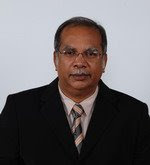The decision has been made, but i dont think its a "constitutional decision" but made based on political situation which i called it as a "political decision." Its a sad day for those who are struggling for the freedom to practice the religion. Its a open secret that she has converted to christianity, so i dont see the victory as "proclaimed" by some religious bigots. On paper her religion will be "Islam" but by soul she will not. If she die in Malaysia, religious authority will get her body but definately will fail to get her soul. If you are strong enough in your stand as what you are, then the religious authority dont need the law to put those who decided to renounce behind the bar just to make he/she to remain as a muslim. The decision has not solved the problem and this type of cases will prolonged and in future we will see more cases which will create more tension and will widen the gap on our unity. If you love this country and you believe you are part of this country, then you can make a changes. How? Show your disatisfaction on ballot paper.
Datuk Richard Malanjum on his dissenting judgement said "it was not the function of the NRD to ensure that Lina had properly apostasised as such a matter should be left to the relevant religious authorities to take any action as deemed necessary. The NRD has not shown that one of its statutory duties is to ensure that a person has properly renounced the Islamic faith in accordance with the requirements of the Islamic authorities. The principle of administrative law stated that a public authority must not act mechanically and must consider each case on its merits."













